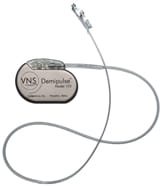- Find a Doctor
-
For Parents
- Before Your Visit
- During Your Visit
- After Your Visit
- More Resources for Parents
Patient & Visitor Resources -
Services
- Locations
-
About Us
- About Childrens
- Find it Fast
- Additional Resources
Find it FastAdditional Resources - MyCHP
ALERT:
There is construction in and around UPMC Children’s Hospital that is affecting the traffic flow – please allow for extra time traveling into the hospital.
- Find a Doctor
- For Parents
-
Services
-
Frequently Searched Services
- Asthma Center
- Brain Care Institute (Neurology & Neurosurgery)
- Cancer
- UPMC Children's Express Care
- Ear, Nose, & Throat (ENT)
- Emergency Medicine
- Endocrinology
- Gastroenterology
- Heart Institute
- Genetic & Genomic Medicine
- Infectious Diseases
- Nephrology
- Newborn Medicine
- Primary Care
- Pulmonary Medicine
- Rheumatology
- Surgery
- Transplant Programs
- See All Services
-
Frequently Searched Services
- Locations
- About Us
- MyCHP
- I Want To
- More Links









 A VNS is a device used to treat seizures when seizure drugs are not effective and surgery is not possible. VNS consists of a pacemaker-like generator that is implanted in the chest wall and is programmed by the physician to stimulate the vagus nerve in the neck. Thin wires are threaded under the skin and woven around the vagus nerve in the neck. This device often reduces the frequency of seizures and can also be activated by a patient or caregiver to stop seizures just as they are beginning.
A VNS is a device used to treat seizures when seizure drugs are not effective and surgery is not possible. VNS consists of a pacemaker-like generator that is implanted in the chest wall and is programmed by the physician to stimulate the vagus nerve in the neck. Thin wires are threaded under the skin and woven around the vagus nerve in the neck. This device often reduces the frequency of seizures and can also be activated by a patient or caregiver to stop seizures just as they are beginning.